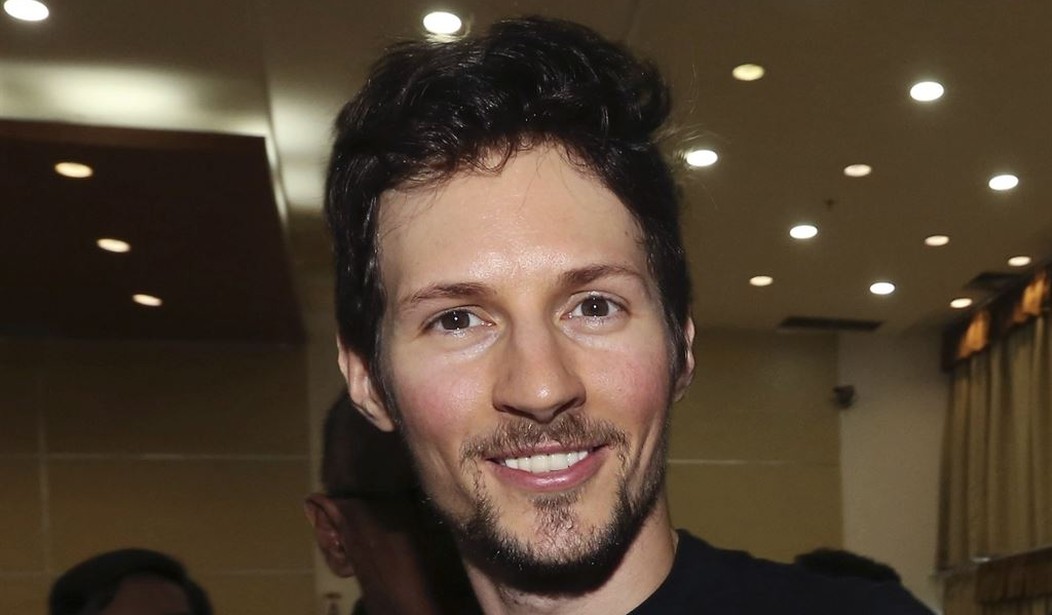The arrest of messaging service Telegram's founder Pavel Durov in France last Sunday is just the latest assault on free speech by supposedly "free" nations.
Durov's platform is used by everybody, including criminals, pedophiles, drug lords, terrorists, and other unsavory characters. The French arrested Durov because he refused to moderate the posts on the site adequately.
Paris prosecutors said that he was detained for "running an online platform that allows illicit transactions, child pornography, drug trafficking and fraud, as well as the refusal to communicate information to authorities, money laundering and providing cryptographic services to criminals," according to Reason.com. Formal charges are pending.
But the hypocrisy of the French government is jaw-dropping. French President Emmanuel Macron said that the arrest "is in no way a political decision" and that France "is deeply committed to freedom of expression and communication."
Last year during the riots, this same champion of free expression said, "We have to think about the social networks, about the bans we'll have to put in place. When things get out of control, we might need to be able to regulate or cut them off."
Absolutely chilling.
In a post from March, Pavel Durov himself commented, "All large social media apps are easy targets for criticism due to the content they host." He vowed, "We shall solve any potential challenges the same way we do everything else — with efficiency, innovation and respect for privacy and freedom of speech."
Duov's arrest did not take place in a vacuum. Jacob Mchangama, founder of Justitia, a think tank in Denmark, calls it "a free speech recession." Mchangama says, "liberal democracies, rather than constituting a counterweight to the authoritarian onslaught, are themselves contributing to the free-speech recession."
The U.S. First Amendment says, in plain language, that "Congress shall make no law" abridging the right of free speech. But it doesn't say anything about the government sitting on private individuals or companies to pressure them to censor ideas and language that they don't care for.
Recently, Facebook founder Mark Zuckerberg wrote a letter to the House Judiciary Committee apologizing for his company's role in censoring content.
"In 2021, senior officials from the Biden administration, including the White House, repeatedly pressured our teams for months to censor certain COVID-19 content, including humor and satire," Zuckerberg wrote to Chairman Jim Jordan (R–Ohio). "I believe the government pressure was wrong, and I regret that we were not more outspoken about it."
If it's not the clear collusion and coercion exposed in the Twitter and Facebook files and the Backpage online advertising case, it's net neutrality and age verification to keep kids safe. Or attacking anonymous speech or false speech or Section 230 of the Communications Decency Act for letting too many people talk about too much stuff. Or it's about minimizing the reach of wholly invented categories of speech like misinformation and disinformation. When he first ran for president in 2016, Donald Trump wouldn't stop talking about how he wanted "to open up" our country's libel laws, the better to sue his critics. Tim Walz, the Democratic candidate for vice president and a former social studies teacher for crying out loud, wrongly believes that "there's no guarantee to free speech on misinformation or hate speech, and especially around our democracy."
Moisés Naím, the former editor of Foreign Policy Magazine and a syndicated columnist, believes we're experiencing a "mentality revolution" in which even the poor demand to be included in modern society. "The more contact we have with one another, the greater our aspirations," he wrote for Reason.com.
But he cautioned, "By no means is big power dead. The big, established players are fighting back, and in many cases are still prevailing. Dictators, plutocrats, corporate behemoths, and the leaders of the great religions will continue to be the defining factors in the lives of billions of people, even as they slowly lose market share."
The poor and forgotten may be pounding the table, demanding a voice in their own future. For the first time in human history, they have that chance. But it's only a chance. And unless people like Durov stand up to the "Dictators, plutocrats, corporate behemoths, and the leaders of the great religions," the chance for a world of free expression for all will disappear.
The fix is in for Durov. Durov will face “initial questioning and possible indictment” at a Paris court" after being released from police custody. His trial will be a crucible for free speech and could decide the fate of free expression for the foreseeable future.










